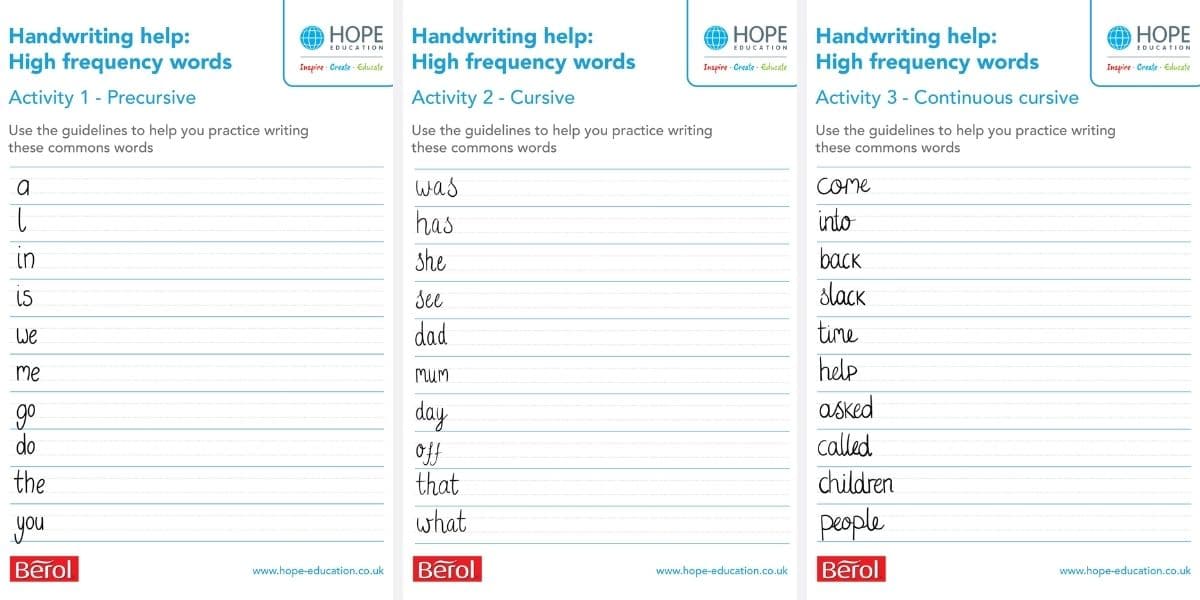Writing is a core skill for any child’s education. Not only is it something they will rely heavily on as a functioning adult in later life, it’s an asset that children can draw on to express themselves with both words and pictures.
As a teacher, handwriting practice will never be far from your thoughts with younger children in KS1. With this free downloadable activity pack, you can help your pupils practice their handwriting on 30 different words.
Handwriting practice for KS1: An activity pack
Improve the handwriting skills of any pupil at KS1 level with this activity pack, filled with nine worksheets covering precursive, cursive and continuous cursive writing.
What should I look for in a handwriting pen?
To help improve a child’s handwriting, you first need to give them the correct tools. Handwriting pens such as Berol’s Hand Huggers are specifically designed to encourage children to form good writing and colouring habits.
Opt for a pen that provides a triangular barrel, perfect for comfortably sitting in the smaller hands of children in primary school. Chunky, hardwearing nibs are also essential for resisting the paper they’re writing on. It all adds up to more control for the users, helping children to develop the confidence they need to write clear and legible letters and words.
How can these worksheets help KS1 handwriting?
Worksheets such as our handwriting practice activity pack are perfect for reinforcing the baseline skills required to master handwriting. With 30 words to practice in three styles of writing (precursive, cursive and continuous cursive), pupils can progress through the worksheets and tackle more difficult letters as their proficiency grows.
To enhance learning further, encourage pupils to read the word, say it out loud and cover it before writing it out. This activity pack can form part of a perfect handwriting homework task too.
Why is handwriting practice important in schools?
Today’s younger generations are heavily competent with a keyboard and mouse in front of them, but timeless skills like writing have been shown to provide unique benefits. Studies suggest that when we write something by hand, it engages our brain in a way that typing on a keyboard cannot.
Improving our memory, writing out letters and words helps pupils to learn the alphabet and expand their vocabulary more easily. This in turn helps to boost their creativity and make them more effective communicators.
